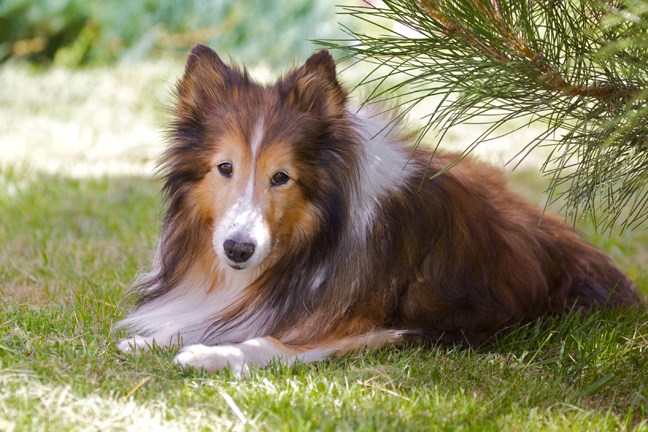I started off the reply to a reader's email regarding the passing of her dog with "Sorry for your loss," but could not get past those four words.
I always found that sentiment empty. It's a generic phrase meant to placate rather than condole and the more I think about it, it really doesn't even make sense. What exactly has someone lost that another person is feeling sorry for? A pet? A dog? A companion? It's kind of like saying, "I'm sorry you lost your wallet."
It would be far more practical to say, "I understand that your heart is breaking right now at the passing of your dog and if there is anything that I can do to help you, please let me know."
When a dog owner's, or any pet owner's animal dies, the grief they feel is very real and in many cases can be deeper than the feelings of grief at the passing of a human. Human-to-human relationships are a complex emotional mixture of biases, judgments, love, anger, acceptance, rejection, fear, co-operation and independence. No matter how much we love our human companion, there is always a small part of us that is feeling any one of those emotions (and many more) at one time. We never truly feel completely comfortable with our human companions. But that is not the case with our dogs. With them, we feel a love that can be described as divine.
So when they die, we feel the loss of pure love, unconditional love, divine love. The heart breaks as the feeling of that divine love seems to leave with the death of the pet.
It is harder still when we begin to think of regrets, as that is what happens with most human deaths. Often forgiveness is asked and granted between humans before a passing, but with dogs, that can't be done.
Words between dogs and humans cannot ever be spoken and regrets, if there are any, never feel as if they can be forgiven. So the heart breaks even more.
When a human dies, the spiritually inclined find comfort in the idea of some sort of ethereal afterlife. Holy scriptures have dedicated laws that govern our ascent into afterlife depending on what we did in our living life. But there is nothing, no scriptures of comfort, regarding our pets. The poem "Rainbow Bridge" was created to help calm our grieving hearts and worried minds in regards to where our dogs go once they are gone.
Our society as a whole is not ready to accept the grief of an animal lover. Since many humans have not had the pleasure of experiencing the depth of love within the bond of a human and a dog, the grief is often dismissed as frivolous, eccentric or even over-dramatic. But the grief is real, it is real!
Because that grief is real, it cannot be pacified. It needs to be dealt with the same way one grieves the loss of a human life. Words such as, "You'll get another dog one day" do nothing to help heal. They only add anger to the grief because every dog is special and every dog is irreplaceable. Trying to be positive this way may show compassion, but it is not empathetic. Empathy would be lending the griever a non-judgmental shoulder to cry on, listening with an open-hearted ear and offering a warm hand to hold. Basically, everything they are missing from their dog.
The length of time someone grieves the death of their dog is very personal, everyone is different. But in time they will begin to smile again when they think of their dog. I like to say this is because the cracks in their heart are beginning to fill with the spirit of their dog and their dog's memory is being held where it is meant to be: in their heart instead of their mind.
Offer sincere condolences to a grieving pet owner by understanding and respecting that their heart has indeed been broken and it needs time to heal.
Joan Klucha has been working with dogs for more than 15 years in obedience, tracking and behavioural rehabilitation. Contact her through her website k9kinship.com.



